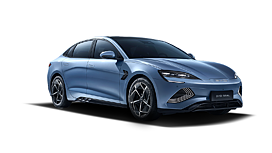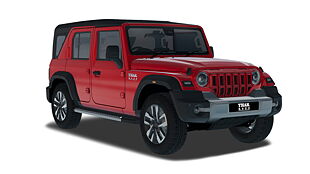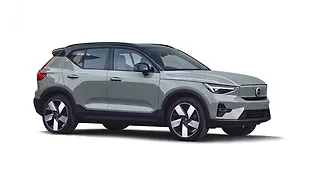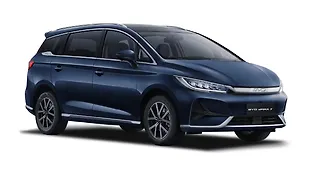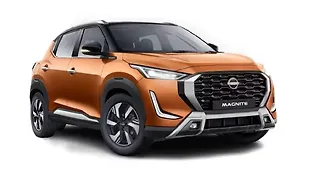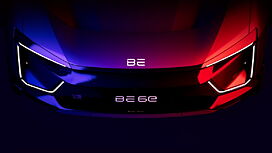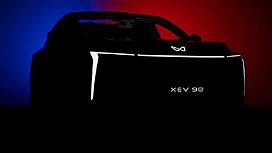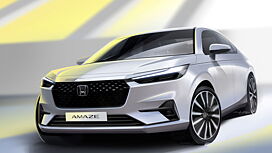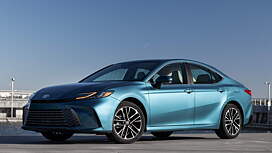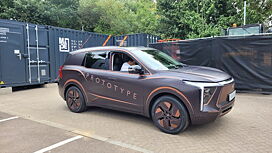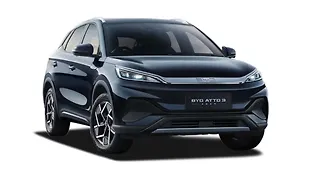What is it?
BYD India showcased just two cars at their Auto Expo 2023 pavilion. First was the Atto 3Special Edition finished in a unique Forest Green colour. Joining it at the stage was the next offering from BYD. It was the BYD Seal which is an electric sedan. Here we will tell you everything you need to know about it.

Appearance-wise, the Seal looks futuristic, carrying a similar appeal set down by the likes of the Tesla Model 3 and Hyundai Ioniq 6. It has handsome proportions and ‘looks-fast-when-standstill’ styling. To give you a perspective, the Seal is designed by a German designer Wolfgang Egger who has prominent experience in Alfa Romeo, Seat, and Lancia, and he has also been the design head for Audi and Lamborghini before joining BYD in 2017. Egger’s design expertise is evident in the Seal.

There are character lines seen on the bonnet and on the door line. What catches your attention is the glossy black skirting on the side and front lip, along with the arrow-shaped inserts on the front bumper and on the side fenders. At the back, the tail light setup reminds us of the new-gen Hyundai Elantra that’s on sale internationally. Also, you get massive, gloss-black finished diffusers that add to the visual drama. Lastly, the 18-inch alloy wheels are designed to be aerodynamic, to reduce drag. The four-door sedan measures 4,800x1,875x1,460mm with a wheelbase of 2,920mm.
How is it on the inside?

For the Seal, the cabin layout may be different for the international model depending on the markets the Seal is currently being offered in. But the Seal’s cabin showcased at the Expo had a good departure from what was seen in the Atto 3. Unlike the SUV brethren, the Seal has a minimalistic cabin with a small gear lever sticking out in the floating yet sculpted centre console. It uses a 10.8-inch square driver’s display. However, the floating infotainment screen as well as the steering wheel design looks scrounged from the Atto 3. The dashboard layout is also more intricate and flows seamlessly into the door pads. The piano black inserts along with white upholstery and premium-looking stitching do make the Seal appear more upmarket.

Talking about the front seats, they are comparatively sportier with their bucket seat-like snug fitting with integrated headrests. These seats are usually seen on powerful sports cars but they don’t look out of place in the Seal’s cabin. Then, the large panoramic sunroof also adds to the ambience despite the headroom being tight for taller passengers.
What kind of features will it get?

We have sampled the Atto 3 and found it to be brimming with features. The same can be expected with the Seal when it goes on sale in India. This would include an LED auto-lamp setup, heads-up display, electric seat adjustments, a panoramic sunroof, a wireless charger with a host of USB ports, a 360-degree camera, ambient lighting, and an air purifier. Like the Atto 3, the Seal is also expected to offer an NFC-based key card with keyless entry. Also, the 12.8-inch touchscreen will share the familiar operating system seen on the Atto 3, which we found to be smooth, intuitive, and free from any bugs.

As for safety, BYD might offer the Seal with seven airbags along with a host of ADAS features. This would include everything from front and rear collision warnings, lane departure warning with lane keep assist, and blind spot monitor to emergency automatic braking, and rear cross-traffic alert with brake assist. There’s also hill assist and tyre pressure monitor expected in the package.
What is it powered by?
All modern BYD offerings make use of the e-platform 3.0 which also underpins the Seal and Atto 3. This platform integrates the batteries and running cycle parts into a single unit, thus making it lighter, more robust, and scalable. So the Seal also uses the Blade Battery technology along with the 8-in-1 powertrain module.

Globally, the Seal gets two battery pack options. The smaller of the two packs is the 61.4kWh unit offering 550km of range. It uses an RWD setup with a single motor mounted on the rear axle and puts out a modest 200bhp. The long-range version uses the 82.5kWh pack and offers a claimed range of 700km. It offers 230kW of power output which is equal to just over 300bhp and a total twisting force of around 360Nm. There’s also a more powerful performance version of the Seal in the international markets which has an output of more than 500bhp and 670Nm. That said, the entry-level version of the Seal has a 0-100kmph time of 7.5 seconds which isn’t half bad. Meanwhile, the range-topping performance version can do the same run in just 3.8 seconds.
As for the charging, the smaller battery pack comes with a charging capacity of up to 110kWh and the larger one offers up to 150kWh of charging capacity. Like the Atto 3, the Seal also offers a vehicle-to-grid (VTO) reverse charging capability.
What about its price, competition, and launch?

The BYD Seal is currently on sale in many international markets across Europe, Australia, and China. When it will go on sale in India, the Seal will be the third offering from the Chinese carmaker, following the E6 and Atto 3. BYD did not have plans of introducing a third product for at least a couple of years after the Atto 3 – as their focus was on establishing the abovementioned two products in the country while they continued to set up more showrooms and touchpoints across the country.

However, the presence of the Seal at the Expo seems to have changed the plans for good measures. We now expect the Seal to go on sale in India as early as late 2023 or sometime next year. When it arrives, the sedan is most likely to be positioned above the Atto 3 in the premium segment and is anticipated to carry a price tag of around Rs 45-55 lakh (ex-showroom). This will put it up against the likes of the BMW i4, Kia EV6, and Hyundai Ioniq 6 in the new-found premium EV segment.
Pictures by Kapil Angane and Kaustubh Gandhi

